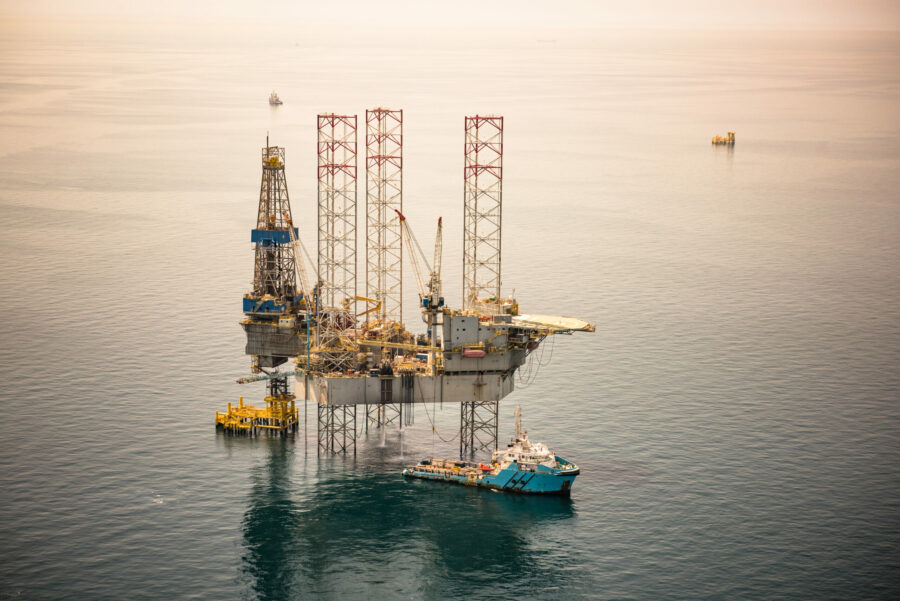Not even 48 hours had passed since Saudi Energy Minister Prince Abdulaziz bin Salman said that “OPEC” may have to reduce production, when other member countries of the organization issued comments supporting this development.
Prince Abdulaziz had said in an interview Monday with “Bloomberg” that the oil markets are suffering from “isolation”, as international futures contracts have failed to accurately reflect the fundamentals of supply and demand. He pointed out that the result was “extreme” price fluctuations. He said that “OPEC +” is more committed and flexible, and it has means within the framework of the cooperation declaration mechanisms that enable it to deal with challenges, which includes the possibility of reducing production at any time, and in different ways, something that has been repeatedly and clearly demonstrated during the years 2020 and 2021.
The statements of the Saudi Energy Minister pushed oil prices up, before Reuters reported, quoting sources, that this matter is not imminent.
And then messages of support for Prince Abdulaziz’s statements started to appear.
Iraq announced that “poor liquidity and extreme fluctuations in the oil futures market have led to prices being far from meeting market fundamentals.”
The state-owned Oil Marketing Company (SOMO), said in a statement on its website, “Iraq believes that the OPEC + alliance, which includes the Organization of Petroleum Exporting Countries and other producers, including Russia, will continue to monitor the market and will take all necessary measures to achieve a balance in the oil markets.”
Kuwaiti Oil Minister Muhammad Al-Faris, for his part, said that Kuwait will continue to support efforts aimed at enhancing market stability, especially through “OPEC +”. He pointed out that the “OPEC +” alliance has succeeded since 2020 in restoring the oil market’s balance and stability by ensuring sufficient supplies to the markets.
For his part, Algerian Energy Minister Mohamed Arkab announced his country’s readiness, along with its partners in the “OPEC +” alliance, to take the necessary measures to maintain the stability and balance of the global oil market. He was alarmed by the volatility of oil prices over the past weeks, saying that it does not reflect a major change or turmoil in the fundamentals of the crude market, but attributed the reason to excessive concerns related to slowing economic growth and global demand for oil.
The Algerian Minister of Energy stated that his country would raise “the issue of defining a common approach for the coming months that would support the efforts of OPEC and its partners aimed at ensuring the stability of the global oil market,” according to APS reported.
Equatorial Guinea expressed its full support for the Saudi Energy Minister’s comments. “Equatorial Guinea fully supports His Royal Highness Prince Abdulaziz in his quest for stability, as do other producing countries in Africa,” it said in a statement.
The Organization of Petroleum Exporting Countries and its allies are scheduled to meet on the fifth of next month as part of their periodic meetings to study market developments.
Iran back?
Sources said that the “OPEC +” approach to the possibility of reducing production is linked to Iran’s return to the oil markets, assuming it reaches a nuclear agreement with the West. Iran aims to increase oil production while making good progress in the nuclear deal talks.
“Any deal that could help bolster tight global oil supplies is unexpected this year,” according to Platts Analytics, part of S&P Global Commodity Insights.
According to the monthly Platts OPEC survey, Iranian oil production stood at 2.58 million barrels per day for the four months to July.
In a report issued on August 16, Platts Analytics said it had previously assumed a temporary agreement would be reached by the end of 2022, which would help increase Iran’s oil supply by 500,000 barrels per day during the first quarter of 2023. But it is now assuming Iran’s crude oil and condensate exports will remain steady at 800,000 barrels per day for the remainder of 2022 until the end of 2023.
According to Standard & Poor’s Insight, the Iranian Oil Ministry’s Shana news service reported on August 22, quoting an official at the National Iranian Oil Company, that Iran’s oil production capacity will increase to 4.038 million barrels per day at the end of the Iranian year, in March 2023, or within seven months.
Iran’s current capacity is 3.8 million barrels per day.
Iran’s oil industry has suffered from years of under investment. Any increase in capacity will require rigs and equipment to drill new wells, repair and overhaul existing wells in onshore and offshore fields as well as replace pipeline equipment, said National Iranian Oil Company director for production supervision, Hormuz Galvand.
Some of the other facilities that need to be repaired or replaced include oil treatment units, water desalination, pressure boosters and turbo compressors, he said, adding that skid-mounted equipment is also needed to reach the target.








